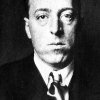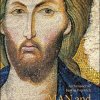Sidebar
Site Map
A great man is one who collects knowledge the way a bee collects honey and uses it to help people overcome the difficulties they endure - hunger, ignorance and disease!
- Nikola Tesla
Remember, remember always, that all of us, and you and I especially, are descended from immigrants and revolutionists.
- Franklin Roosevelt
While their territory has been devastated and their homes despoiled, the spirit of the Serbian people has not been broken.
- Woodrow Wilson
The Orthodox Church is a missionary Church; meeting a young missionary couple
In this episode of the New Pascha video podcast ministry of the Western American Diocese of the Serbian Orthodox Church, a young Orthodox couple, Josef and Effy Candelario, talk to Fr. Bratso Krsic about their missionary journey from California to Greece, Albania and Sweden.
Gospel in action and seeds of life
Djordje Popovic, founder of SAFKOS (Serbian American Foundation for Kosovo) and Vlada Vladic, founder of Vlada’s Seeds Of Life talk to Fr. Bratso Krsic about their inspiring endeavors to improve the lives of others.
Embracing each other with the supreme road to knowledge - love
Fr. George Gligich, St. Peter the Apostle Serbian Orthodox Church, Fresno, CA, and Fr. Daniel Kirk, St. Herman of Alaska Mission parish, Kalispell, MT, talk with Fr. Bratso Krsic about the supreme road to knowledge – love and other facets of contemporary Orthodox ministry.
Fr. Norman July Catechesis “Your sins are forgiven”
Our Lord Jesus Christ gave us the keys of restorative healing and synergy with God with words like these: “Love your enemies, bless those who curse you, do good to those who hate you.” Saint John Chrysostom helped to prove it in his treatise that demonstrated if a man doesn’t suffer injury by his own hand then nothing or no one can harm him. In a time where so many derive self-worth from how they’re perceived by strangers on social media, while surveys show church attendance decreasing – well before the pandemic – Saint John’s words have never been more relevant and needed in order to bring a portion of God’s people back to Him in soul-saving humility.
Pursuing education - shaping image of Christ in our souls.
Deacon David Williams and Dr. Gaelan Gilbert (Reader Anthony), professors from St. Katherine University, a regionally-accredited Orthodox Christian institution of higher education in southern California, talk to Fr. Bratso Krsic about Orthodox education, challenges and opportunities in pursuing our goal – shaping image of Christ within our souls.
A Reflection by Fr. Norman for the Sunday of the Paralytic Man
The miraculous healing at the pool that takes place in the Gospel lesson for the fourth Sunday of Pascha is an example of something that’s been made abundantly CLEAR at this point in the life of God’s people Israel, though it’s not been abundantly ACCEPTED: the Messiah had come as THE FULFILLMENT of the Mosaic Law and the Prophetic teaching: Jesus Himself proclaimed it with those very words during His sermon on the mount.
We are not alone because we are of the Church - Fr. Bratso Krsic and Fr. Serafim Gascoigne
NEW PASCHA Crosstalk presents: Pastoral reflections of the clergy of the Western American Diocese of the Serbian Orthodox Church. This episode features Fr. Serafim Gascoigne, from Pokrov of the Theotokos parish in Seattle, Washington, and Fr. Bratso Krsic from St. George parish of San Diego, California. These reflections are timely. They are permeated with pastoral insight, Orthodox Christian spirituality, and care. We are not alone because we are of the Church; we are united in the bond of love; God, Theotokos, and saints are with us.
Pastoral reflections on joys, challenges and spiritual growth amid new pandemic (COVID-19)
NEW PASCHA Crosstalk presents: Pastoral reflections of the clergy of the Western American Diocese of the Serbian Orthodox Church. This episode features Fr. Bratso Krsic from St. George parish of San Diego, California, Fr. George Elliot of St. Andrew Fool-for-Christ parish, Anderson, California, and Fr. John Suvak from St. John the Wonderworker parish, Eugene, Oregon. Their insights are uplifting and timely. They are personal testimonies from concerned and loving priests addressed to their flock and beyond. The Resurrection of Christ is the source of our renewal and life.




